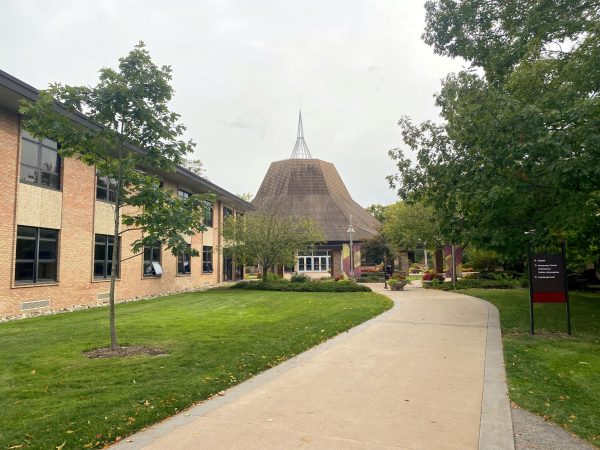Some students cite openness to questions and doubt as helpful during their crises of faith
About two-thirds of people who grew up attending church leave for a year or more as young adults, research shows. While not all those who doubt the Christian faith leave the church, and not all who leave the church doubt the Christian faith, these statistics indicate a high degree of religious uncertainty among college-aged adults, and Calvin is not immune to this phenomenon. Many Calvin students experience serious religious doubt, and most of those who don’t have at least one close acquaintance who does.
For some, that moment has already arrived. Celine Sidharta, a sophomore studying writing, grew up in the United States, China, Indonesia and Singapore, where her parents were missionaries. Her early experiences in a small church in Indiana were largely positive, but when her family moved to Indonesia, she found herself growing disenchanted. At the private Christian international school she attended, “God was combined into a lot of the lessons,” but doubts and questions about the teachings of the church were dismissed or given simplistic answers. “‘Suffering — it’s all there for a reason’ was pushed way too hard,” Sidharta said.
By the time financial misconduct within their church pushed Sidharta’s parents to look elsewhere, Sidharta was bitter with God and the church. While her parents changed congregations, she was ready to leave altogether.
Starting college, I really started doubting for the first time
— Bella Mead
Doubt and misgivings are not unique to those who experience unhealthy religious environments. Bella Mead, a sophomore studying literature, said she has an open and constructive relationship with her Christian parents and pastor. Nevertheless, she struggles with teachings on homosexuality, theodicy and salvation. “Starting college, I really started doubting for the first time,” Mead said.
Fortunately, her questions have not caused a rift from her family or her church. She began having regular conversations with her parents and her pastor, whom she described as “open to questions.” She said she hopes people in the church will start to “normalize having doubts,” because her parents and pastor’s reaction was instrumental in her decision not to leave the Christian faith.
As for Sidharta, she was initially more than happy to be done with Christianity. “A lot of people said ‘you’re going to regret it,’” she recalled, “but I felt great … better than I had felt in a long time.”
However, removed from the closed environment of her childhood, she “found [herself] studying theology more and more.” Her questions remained, but her aversion to the faith softened. During her freshman year at Calvin, she considered majoring in theology and appreciated her religion professors’ willingness to acknowledge her questions about God and suffering.
Both she and Mead said that they don’t have their faith completely worked out. While Sidharta’s relationship with God has improved, she does not attend church regularly. She also points out that it can be intimidating to question faith in a setting where so many people seem to have it figured out. Mead, who attends church and chapel, admits that she often finds church-related events “acutely uncomfortable.”
However, they both consider their period of doubt and continued questions to be an integral part of their religious experience. Reflecting on her religious struggles and subsequent return to Christianity, Sidharta remarked that “it’s the whole process that really made it worth it.” Neither Sidharta nor Mead believe that questions or doubts should be viewed as a threat to the Christian faith.
As Mead put it, “If God is real, God can take a few questions.”






